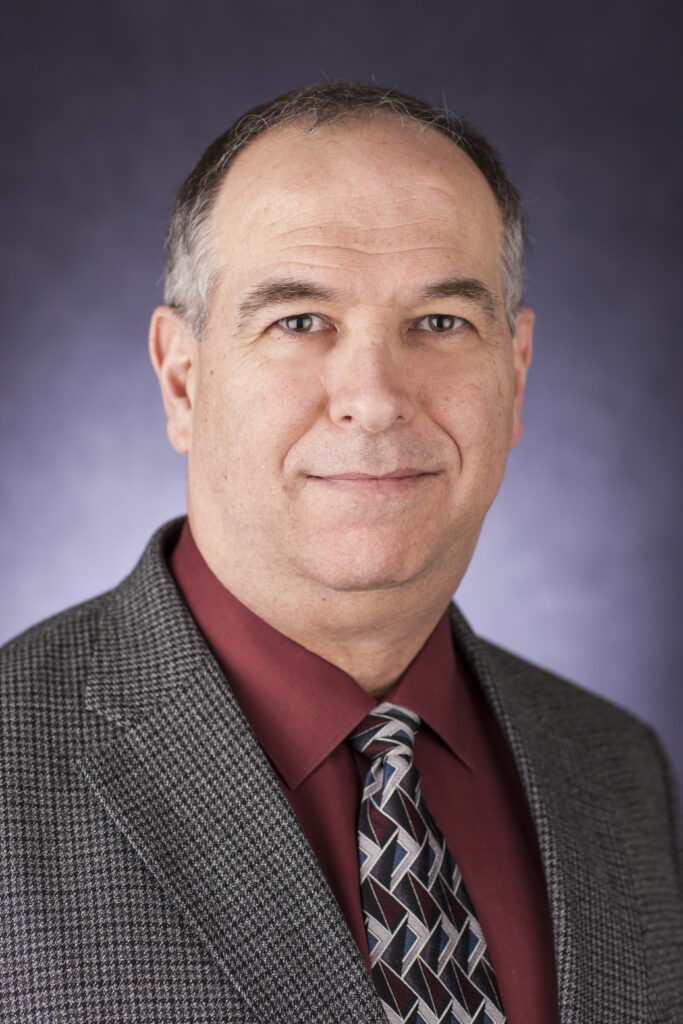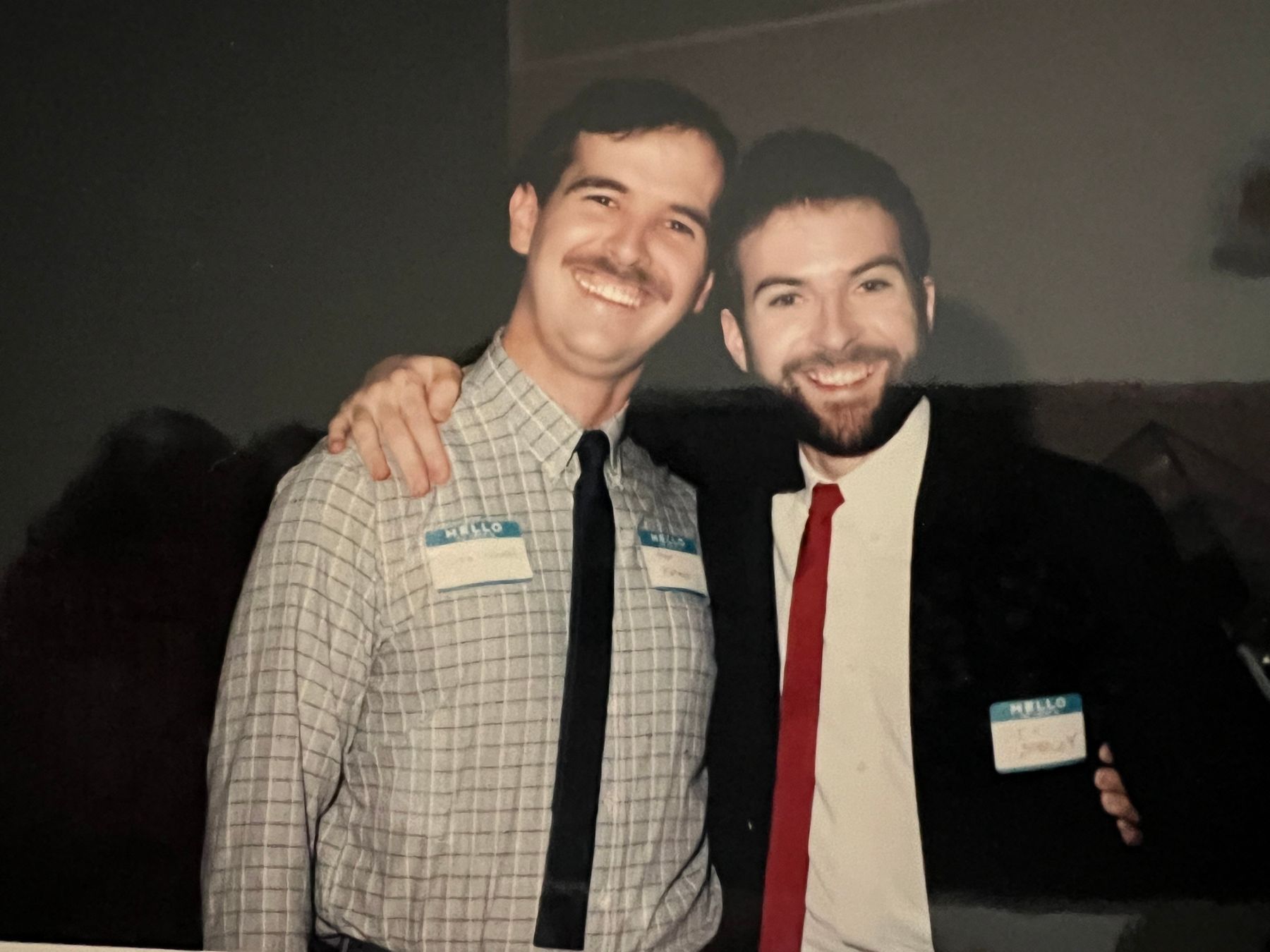
AIAA is proud to honor the legacy of a remarkable family man who made significant contributions to aerospace over his 40+ year career through the new Steve L. Karman Jr. Aerospace Engineering Scholarship.
The $10,000 scholarship aims to support undergraduate students who embody the same dedication to aerospace excellence that Steve demonstrated throughout his career. It was made possible through the generous funding provided by AIAA Fellow John Chawner, a colleague and dear friend of Steve.
“The establishment of the Steve L. Karman Jr. Aerospace Engineering Scholarship represents more than just financial support for students—it serves as a lasting tribute to an individual who made meaningful contributions to aerospace engineering. This scholarship will ensure that Steve’s legacy continues to inspire and support future generations of aerospace professionals,” John said.
Check out the application process for the
Steve L. Karman Jr. Aerospace Engineering Scholarship.
A Lifetime of Achievement
“Steve and I started our careers together in the 1980s at what was General Dynamics, which is now Lockheed Martin, in Ft. Worth. He was able to compute the first ever 3D computational fluid dynamics (CFD) simulation of the F-16 fighter aircraft—from scratch! The code eventually became the Falcon CFD code which is still used in-house today,” John stated.
Years later, John and Steve worked together at Pointwise, which John co-founded. “We hired Steve in part because of his groundbreaking work on high-order curved mesh generation. As a result, we were able to launch that as the first commercial capability to generate high-order curved meshes for realistic aerospace configurations,” John recalled.
In the final years of his career, Steve was hired on at Oak Ridge National Laboratory to generate high-order meshes, “because he was just about the only one who could do it,” according to Steve’s daughter, Kristen Karman-Shoemake. “There is no one else who’s been able to match what he was able to do in that sphere.”
“In general, his entire career has been about enabling more automation in the design process for aerospace and really, any computational engineering. It’s all been about a more hands-off approach to creating these really complex meshes that enable quick design cycles,” Kristen added.
Contributing to AIAA Technical Leadership
Steve’s impact on aerospace was felt far beyond his day job. He was an AIAA Associate Fellow and a dedicated AIAA member, authoring numerous peer-reviewed papers and presentations, which are cited by many other authors in their papers.
“We checked ARC [Aerospace Research Central] and found 3,000 hits! His work is the foundation on which other engineers are doing the next generation of research,” John shared.
Steve also volunteered with AIAA, as vice chair and then chair of the Meshing, Visualization and Computational Environments Technical Committee (2007–2010) and served on several other technical committees over the years. He attended the annual AIAA SciTech Forum regularly, chairing sessions and attending workshops.
Mathematics and Science – A Family Affair
Steve’s family is pleased to see such a meaningful tribute to their beloved father and husband that celebrates him as an engineer and a family man. This scholarship stems from a lifetime of friendship between Steve and John.
“We met in the mid-1980s working at General Dynamics together. Our families became close friends over the years, and I even babysat for Kristen as a kid,” John remembered.
Steve’s daughter, Kristen, has gone into the family business of CFD. John was pleased to bring Kristen on as an intern at Pointwise, and then as a full-time employee. She continues to work with Cadence, after Pointwise was acquired.
Kristen, an AIAA Senior Member, gained her bachelor’s degree in Mathematics from the University of Tennessee, Knoxville, after receiving encouragement from her dad following a crisis about which major to pursue. She then went on to receive a master’s and Ph.D. in Computational Engineering from the University of Tennessee, Chattanooga, where Steve served as professor. “He really was a mentor, first and foremost.”
“All three of us [daughters] have a bachelor’s in Mathematics and at least a master’s in a related field, and I have a Ph.D. That is very unique to have three daughters this accomplished in math and it’s all because of him,” Kristen recalled. “It’s because of his mentorship and his ability to explain concepts in simple ways.”
“My dad was a nerd before it was cool. He watched Star Trek with us, insisted we know the science behind everything, and we celebrated Pi Day every March 14. Education and knowledge were very important to him.”
Looking Ahead to the Next Generation
Kristen reflected on her dad’s enduring impact on aerospace. “Memorializing my dad with a scholarship is kind of perfect.”
During his life, Steve was already seeding the next generation of aerospace professionals as a professor at the University of Tennessee at Chattanooga (2003–2014). In that time, he mentored six Ph.D. students and 13 master’s students through their degree programs.
“He was the kind of professor that would sit there and help you debug your code. You could ask him anything,” Kristen recalled.
Recipients of the Steve L. Karman Jr. Aerospace Engineering Scholarship will carry forward the legacy of a man who not only advanced the technical capabilities of aerospace engineering, but also exemplified the values of mentorship, humility, and service to the broader engineering community. All of these qualities are essential for the continued growth and success of aerospace in the future.
In the past 20 years, the AIAA Foundation has provided over 1,300 scholarships and graduate awards to students at more than 150 colleges and universities worldwide. To learn more about how you can create a living legacy through naming a scholarship, contact AIAA Foundation Director Alex D’Imperio at [email protected].
Undergraduate students can apply online now for the Steve L. Karman Jr. Aerospace Engineering Scholarship through 31 January 2026.




